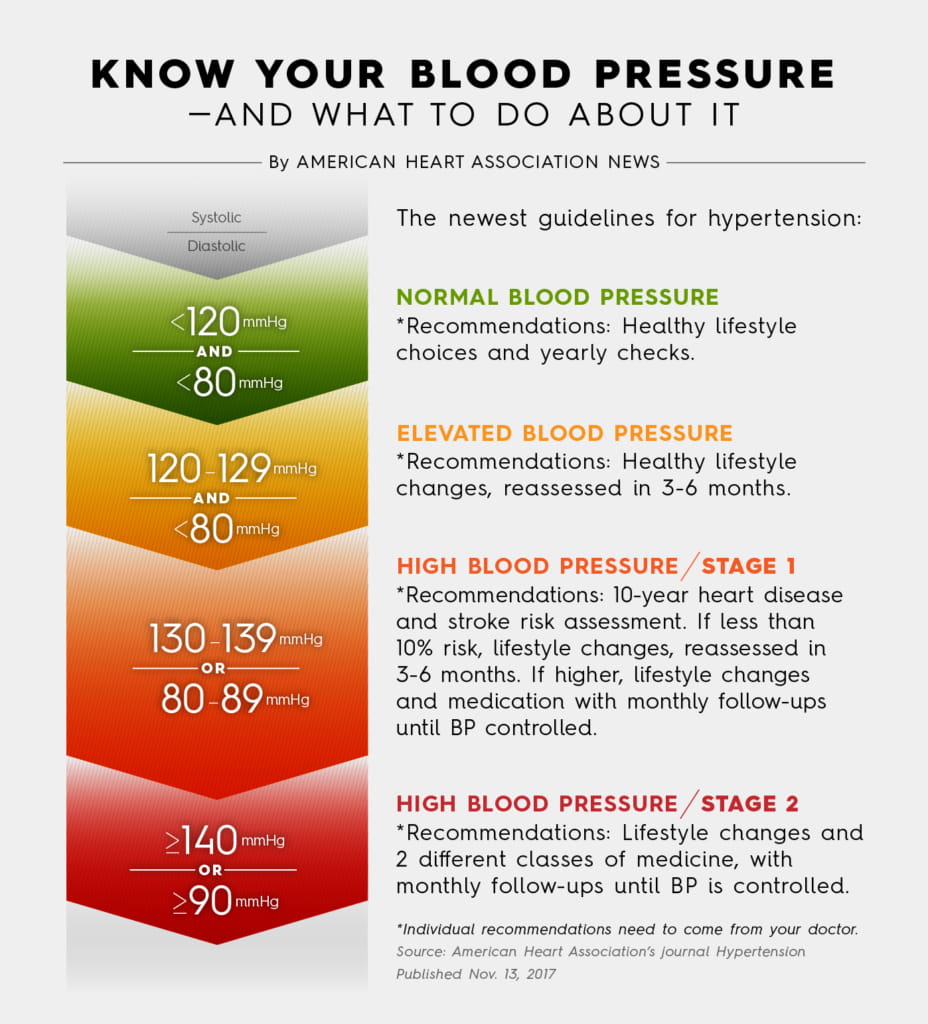Managing high blood pressure, also known as hypertension, involves a combination of lifestyle changes and, in some cases, medication.
What is Blood Pressure and Why is it Important?
Blood pressure is the force created by the amount of blood your heart pumps and the resistance to blood flow in your arteries. It’s an important because oxygen and nutrients could not be pushed around the circulatory system to nourish tissues and organs without blood pressure.
Your blood pressure rises and falls naturally throughout the day, but the higher your blood pressure, the harder your heart must work. High blood pressure, or hypertension, is often called a silent killer, because you may not feel that anything is wrong. If the pressure in your arteries is high enough, and uncontrolled, it may eventually cause serious health problems, including heart attack and stroke. – Source

TIP: If you have high blood pressure, aim to consume less than 1,500 mg of sodium per day.
Here are some strategies to help in managing high blood pressure:
- Consult with a healthcare professional: It’s important to work with a healthcare professional who can assess your blood pressure levels, determine the underlying causes, and provide guidance on the best management plan for you.
- Follow a healthy diet: Follow a balanced diet that emphasizes whole grains, fruits, vegetables, lean proteins, and low-fat dairy products. Reduce your sodium intake by avoiding processed foods, fast food, and adding salt to meals. Aim for a diet rich in potassium, as it helps counteract the effects of sodium. Additionally, limit alcohol consumption and avoid excessive caffeine.
- Reduce sodium intake: Excess sodium can contribute to high blood pressure. Aim to limit your daily sodium intake to less than 2,300 milligrams (mg) or even lower, depending on your circumstances. Read food labels, avoid processed and fast foods, and opt for fresh ingredients when cooking.
- Exercise regularly: Engage in aerobic exercise for at least 150 minutes per week or 75 minutes of vigorous-intensity exercise. Physical activity helps lower blood pressure, strengthens the heart, and improves overall cardiovascular fitness. Consult with your healthcare provider before starting an exercise program.
- Maintain a healthy weight: If you’re overweight or obese, losing even a modest amount of weight can significantly lower your blood pressure. Incorporate regular physical activity, such as brisk walking, swimming, or cycling, into your routine to aid weight management and improve cardiovascular health.
- Limit alcohol consumption: Excessive alcohol intake can raise blood pressure. If you choose to drink alcohol, do so in moderation. For men, limit consumption to a maximum of two standard drinks per day, and for women, limit to one standard drink per day.
- Quit smoking: Smoking damages blood vessels and raises blood pressure. If you smoke, quitting is one of the best things you can do for your overall health. Seek support from healthcare professionals, support groups, or smoking cessation programs to help you quit.
- Manage stress: Chronic stress can contribute to high blood pressure. Explore stress management techniques like deep breathing exercises, meditation, yoga, or engaging in hobbies and activities that help you relax. Find what works best for you and incorporate stress-reduction strategies into your daily routine.
- Monitor your blood pressure: Regularly check your blood pressure using a home blood pressure monitor or by visiting your healthcare provider. Monitoring allows you to track changes and determine the effectiveness of your management strategies.
- Take prescribed medications: If your healthcare provider prescribes medication to manage your blood pressure, take it as directed and maintain regular follow-up appointments. Some individuals may require medication to help control blood pressure even with lifestyle modifications.
Keeping your blood pressure within a normal range is key to preventing complications, such as heart disease and stroke. Remember that a single blood pressure reading doesn’t necessarily classify your health and that an average of readings taken over time is the most accurate.
